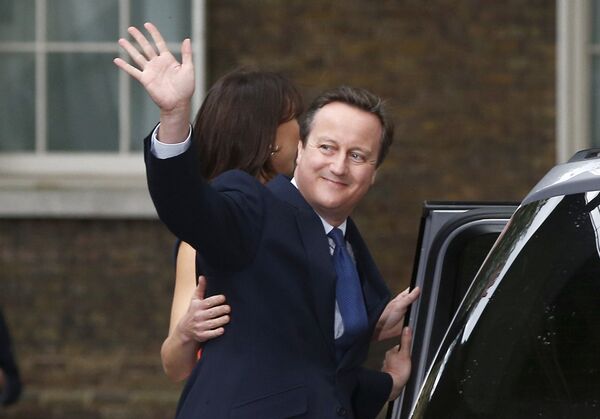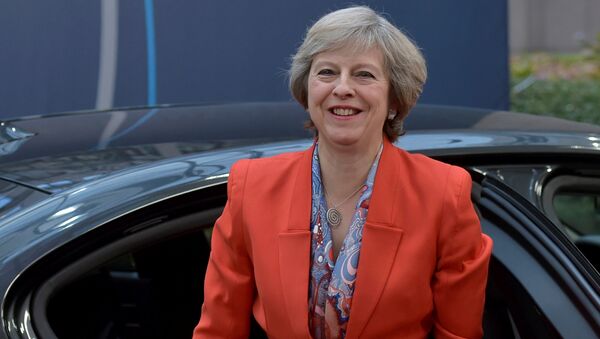May took up the role of prime minister on July 13 following the shock result of the referendum on UK membership of the EU, which resulted in 52 percent voting for Britain to leave the European Union — known as "Brexit". Her predecessor, David Cameron, had failed to convince the British public to remain in the union.

May has set about the task of negotiating Britain's extrication from the Brussels machine and its new relationship with the EU post-Brexit by saying "Brexit means Brexit". However, there are widely differing views of what is meant by Brexit.
Some say "hard Brexit" means that Britain passes a "great repeal law" that simply repeals every piece of EU law and Britain pulls out of every EU institution and opens negotiations for a trade deal with the EU. Other say "soft Brexit" means renegotiating every aspect of British membership of the EU making it possible to remain part of the trading bloc, without so many of the ties.
I want to be absolutely clear. There will be no unnecessary delays in invoking Article 50. pic.twitter.com/xSmfzhiGTn
— Theresa May (@theresa_may) October 2, 2016
However, as May attends her first EU summit, there are new rumors that Brexit may not even happen. After the leaders' dinner Thursday night (October 20), European Council President Donald Tusk told reporters: "It's not our decision, it's not our choice, and — if you ask me — I would prefer 28 members, not only for the next months, but for the next years and decades. But we have to respect the result of the referendum. If it is reversible or not — this is in the British hands. I would be the happiest one if it is reversible."
On the agenda of the European Council today and tomorrow: #trade, #MigrationEU and #Brexit. More info: https://t.co/7382tmWxuf #EUCO #CETA pic.twitter.com/SHhhYDB2fp
— EU Council (@EUCouncil) 20 October 2016
"Stupid Brexit"
His views were echoed by Lord Hill, the UK commissioner to Brussels until soon after the referendum result, when he resigned. He says there is a fair chance that the complexities of trying to negotiate Britain's way out of — and then again back into — the EU will prove so difficult that it may be best to remain in an EU that itself needs to change anyway.
Very handy @Bruegel_org table showing the various options for the future UK-EU relationship https://t.co/Pv3miyLUHD #Brexit pic.twitter.com/TzQkOFCjzK
— Emmanuel Mourlon (@manumourlon) 21 October 2016
"I think there is a surprisingly widely-held view that Britain will might still decide to stay in. I think that explains why, previously, Donald Tusk has talked about 'hard Brexit' or 'no Brexit'. One of the things I was keen to do, when I was [in Brussels] earlier this week was to dispel the idea that Britain might somehow stay in, because I am absolutely clear that we are leaving and we need my former colleagues to understand that, because that's the basis for having sensible negotiating," he told the BBC.
"If we approach it in a sensible way, because the European system is a deal-based system, there is more scope for trying to resolve it intelligently than if we go at it a way where we all end up shouting at each other. We have a false choice, in the UK, between 'hard Brexit' and 'soft Brexit'. I think the choice is between 'stupid Brexit' and 'more intelligent Brexit' and that is what we need to go for," said Lord Hill.


